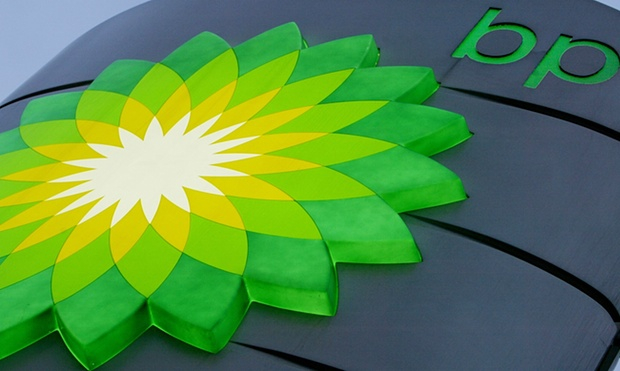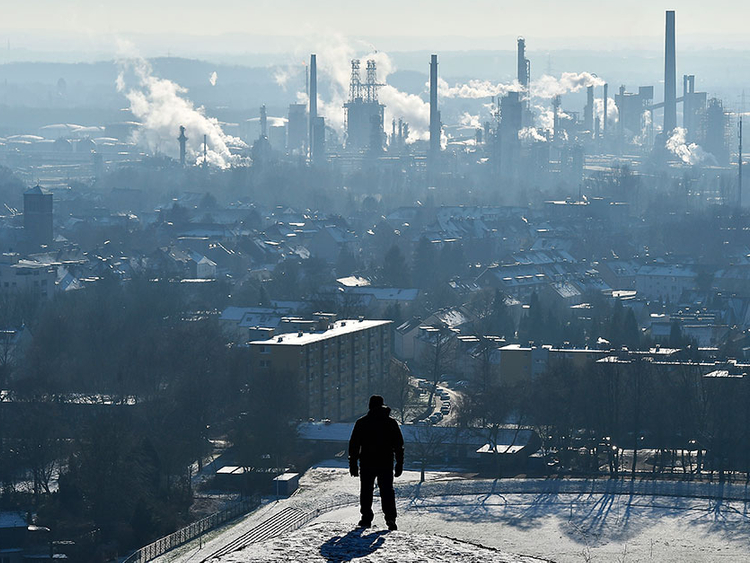-
Oil giant expects to reduce staff and contractors in the upstream business by around 4,000 during 2016
-
Another 3,000 downstream job cuts likely in 2017
London: BP on Tuesday reported its worst annual loss in at least 20 years and thousands more job cuts as the British oil and gas company grappled with a collapse in oil prices.
The energy company reported an annual loss of $6.5 billion for 2015, even worse than its 2010 results when it counted the costs of the deadly Gulf of Mexico oil spill.
BP said it would cut 3,000 jobs in its downstream unit by the end of 2017 on top of 4,000 cuts already announced in oil and gas production as part of a $2.5 billion restructuring programme announced last year.
"We are continuing to move rapidly to adapt and rebalance BP for the changing environment," Chief Executive Bob Dudley said in a statement.
Fourth-quarter underlying replacement cost profit, BP's definition of net income, came in at $196 million, significantly lower than analysts' expectations of $730 million.
Fourth-quarter impairments reached $2.6 billion as its oil and gas production division was hit by weak energy prices, including fields in the Gulf of Mexico, the US Utica shale acreage in Ohio and Libya.
BP's results are the latest in a round of weak fourth-quarter earnings in the sector. Chevron, the No. 2 US producer, last week reported its first quarterly loss in more than 13 years, while Royal Dutch Shell was expected to report a near halving of profits.
Benchmark Brent oil prices averaged $43 a barrel in the fourth quarter of 2015, down from $76 a year earlier.
As a rule, every $1 change in Brent crude oil prices impacts pre-tax replacement cost operating profit by $300 million, according to BP.
“We expect full-year 2016 underlying production to be broadly flat with 2015,” the company said in a statement, adding: "The actual reported outcome will depend on the exact timing of project start-ups, divestments, OPEC quotas and entitlement impacts in our production-sharing agreements. We expect first-quarter 2016 reported production to be broadly flat with the fourth quarter 2015. Oil prices continue to be challenging in the near term."
Staff cuts
BP said it expected to reduce the number of staff and contractor roles in the upstream – or exploration and production – by around 4,000 during 2016 and by up to 3,000 from the downstream arm by the end of 2017.
For 2015 as a whole, the British media reported BP was expected to report underlying profits of $6.4bn – almost half what they were in 2014.
The average price of Brent crude fell the last quarter from around $77 a barrel to $44, a 43% fall, but the BP results have also been hit by other factors.
Despite the problems, analysts at Barclays Capital said BP was already doing well to cut its costs and could easily further trim them if the price of oil, currently at $34, were to remain close to $40.
“BP could respond by reducing [capital expenditure] by a further 20% to $14bn, which would allow management to balance the books by 2018 with the current level of dividend maintained,” said Barclays in an investment note.
BP said it was aware of the forecasts but declined to comment further.
Meanwhile Shell, which reports its fourth-quarter results on Thursday, warned in a trading statement last week that its underlying profits could be halved.
Shell, which has just received the go-ahead from shareholders for a £35bn takeover of rival BG, is expecting to make additional write-offs of up to £5bn.
Concerns about the damage being done to Britain’s oil and gas industry has led the British prime minister, David Cameron, to pledge £250m to Aberdeen. About 70,000 jobs direct and indirect jobs have been lost around the UK due to the crude price slump.
Shell has already promised to cut 10,500 more jobs worldwide once the BG deal is consummated on 15 February. Some job cuts could come in Aberdeen.
Meanwhile, hopes were raised last week that Russia and Saudi Arabia may agree at a meeting next month to hold back oil production in an attempt to push up energy prices.
Management shakeup
On Monday, BP announced a management shake up, promoting the head of its exploration and production arm, Lamar McKay, to the new position of deputy chief executive.
The company pitched the executive reshuffle as part of a broader plan to reorganize and bolster its executive team’s capacity amid one of the worst price slumps in the industry’s history. A company spokesman said the change is “not about succession.”
BP has already outlined plans to sell as much as $8 billion-worth of assets over the next two years, while significantly reducing spending and staff in a bid to cover its costs with free cash flow by 2017.
“These changes simplify, focus and better align accountabilities within our experienced and versatile senior team,” said BP Chief Executive Bob Dudley. “In particular Lamar’s new role will allow us to further concentrate our attention on BP’s highest priorities through this challenging time for our whole industry.”
McKay—a 35-year veteran of the company—will take on some of Mr. Dudley’s responsibilities and also focus on the company’s long-term strategy. It is an area where BP has only been able to focus in recent months after it finalized a $20.8 billion settlement with the U.S. government for its 2010 Gulf of Mexico oil spill, removing significant financial uncertainty.














